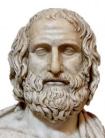7 Books for 7 Moods (Part 2)
In a nostalgic mood? Then why not read a story that you are no doubt familiar with, but may not have read:
Gulliver’s Travels by Jonathan Swift

Intrepid English adventurer Lemuel Gulliver’s fictional memoirs were first published in 1726. Gulliver’s Travels is a satirical work that mocks politics, non-conformist churches, science, the social order and the accepted role of the family. Click here to read my review.
My Opinion: Okay
Feeling discontented at work? You are not alone:
Post Office by Charles Bukowski

The story follows hard-drinking, low-life Chinaski’s menial existence toiling at the post office. Bukowski’s trademark visceral literary style is in evidence throughout this story about the banality and dehumanisation of unskilled drudgery. Click here to read my review.
My Opinion: Excellent
If you are in a pretentious mood then look no further:
Pnin by Vladimir Nabokov

The story consists of various episodes in the academic protagonist’s solitary, cocoon-dwelling life being recounted by an unreliable narrator. Its pretentious author never tires of showing off his knowledge of literature, entomology and linguistics. Click here to read my review.
My Opinion: Wryly amusing and pompous.
In a nihilistic mood? Then you might appreciate:
The Metamorphosis and Other Stories by Franz Kafka

This bleak, existentialist and nihilist compilation of short stories comment on the human condition and the futility of life. The most famous is about a man who wakes up one morning to find that he has been transformed into a beetle. Click here to read my review.
My Opinion: Bleak but good.
Feel like reading something darkly comical? Then why not try:
Necropolis by Guy Portman

This black comedy’s sociopathic protagonist works in the burials and cemeteries department in his local council. Necropolis is a savage indictment of the politically correct, health and safety-obsessed world in which we live. Click here to view its Amazon page.
My Opinion: I am biased so I won’t comment.
If you are in the mood to read a ‘classic’ and haven’t read it already, you might be interested in:
Frankenstein by Mary Shelley

Published in 1818, Frankenstein is lauded by many as being the first science fiction story ever written. Replete with detailed descriptions and ornate prose, this is a cautionary tale about how nature, though essentially good, can be corrupted. Click here to read my review.
My Opinion: Quite good
If you are in a voyeuristic mood then I recommend:
The Voyeur’s Motel by Gay Talese

The Voyeur’s Motel consists of the confessions of Gerald Foos, a motel owner and voyeur. For three decades Foos spied on his motel’s guests. This curious and compelling work boasts a perceptive protagonist and an effective journalistic approach. Click here to read my review.
My Opinion: Interesting
Have you signed up to my newsletter? Click here to do so.

 (480 B.C. – 406 B.C.)
(480 B.C. – 406 B.C.) Circa 27 A.D. – 66 A.D.
Circa 27 A.D. – 66 A.D. (February 26th 1564 – May 30th 1593)
(February 26th 1564 – May 30th 1593) (January 22nd 1561 – April 9th 1626)
(January 22nd 1561 – April 9th 1626) (November 30th 1835 – April 21st 1910)
(November 30th 1835 – April 21st 1910) (July 21, 1899 – April 27, 1932)
(July 21, 1899 – April 27, 1932) (December 9th, 1901 – June 1st 1938)
(December 9th, 1901 – June 1st 1938)













